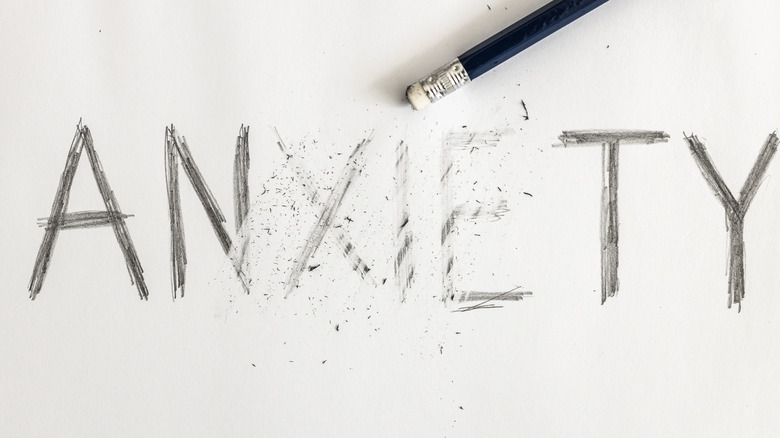How To Tell If You Have Stress Or Anxiety
You feel nervous and anxious all the time and there doesn't seem to be much you can do about it except go about your day and hope sleep comes at night to help take it all away — at least for a little while. But you often lay there wide awake at night willing for sleep to do its thing, but the insomnia seems insurmountable. And then the sun rises and you go through it all again, telling yourself you're just stressed and the anxiety will have to ease at some point, right?
Anxiety and stress often seem like interchangeable words and while both are quite similar, they are not the same thing. You might even feel some of the same symptoms when suffering from either one, but the cause of the symptoms can be different. What are the differences between stress and anxiety and how do you know which one you have? Once you figure it out, what can you even do about it to live a healthier and more peaceful life?
These are the key differences between stress and anxiety
While there's much about stress and anxiety that overlap, the key way to tell the difference is what triggers each feeling. Stress is caused by external triggers, according to the American Psychological Association. Those triggers might be short-term and include work deadlines, a fight with a family member or someone you care about, while more long-term triggers include the inability to work and chronic illness. Meanwhile, anxiety doesn't seem to have any outside triggers, but you still feel haunted by constant worrying that doesn't seem to recede and often doesn't seem to have any logical reasons.
Stress can lead to insomnia, digestive issues, anger, muscle pain, and fatigue, while anxiety can also lead to difficulty sleeping, muscle tension, digestive issues, and difficulty concentrating. The symptoms can even be relieved with the same methods, including physical activity, excellent sleep hygiene, and nutritious eating habits (via the American Psychological Association).
When to see a mental health professional for stress or anxiety
If simple changes in lifestyle don't alleviate the symptoms of anxiety or stress, you might want to visit a mental health professional to see if you might have an underlying anxiety disorder. Generalized anxiety disorder is characterized by the mind often going blank, feeling on edge for no specific reason, and having trouble either getting to sleep or staying asleep. You might also have a panic disorder, in which panic attacks come on unexpectedly, resulting in shortness of breath, sweating, heart palpitations or an accelerated heart rate, sweating, and a feeling of being out of control. Other anxiety disorders include certain phobias like a fear of heights or crowded spaces, or even social anxiety disorder, which causes people to avoid social situations out of fear of what others might think of them (via the National Institute of Mental Health).
Fortunately, a mental health professional can help you deal with these feelings through medications, simple talk therapy, and even cognitive behavior therapy, which teaches people to think differently and therefore react to anxiety-producing situations differently, according to the National Institute of Mental Health.


